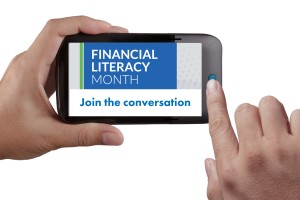 In today’s hectic world, most people have neither the time nor the expertise necessary to navigate the financial complexities of modern life. They need help making sense of it all, and would benefit from a comprehensive, thoughtful approach to money matters.
In today’s hectic world, most people have neither the time nor the expertise necessary to navigate the financial complexities of modern life. They need help making sense of it all, and would benefit from a comprehensive, thoughtful approach to money matters.
For many Canadians, 2018 will be the year they get their financial house in order, and take their first few steps towards improved financial well-being. And a detailed financial plan will be their roadmap.
If you are like many Canadians, you’re anxious about your finances. Seven out of 10 Canadians say they worry a lot about their financial situation and nearly 80% don’t have confidence that they’ll achieve their financial life goals. These result aren’t terribly surprising – Canadians are facing the most challenging economic times in decades. Personal debt is at an all-time high, the cost of home ownership is out of reach for many, and day-to-day living expenses are outpacing income growth. Don’t forget about the ongoing concerns about funding retirement, and your child’s education. Add in the potential for having to cover some health care costs for aging parents and it’s no wonder Canadian’s are financially stressed out. Continue reading

 Charles Dickens wrote A Christmas Carol in 1843. Most people know the story of Ebenezer Scrooge, a miserly man who transforms his life after three spirits teach him the joy of giving. It seems Dickens was way ahead of the research on money and happiness.
Charles Dickens wrote A Christmas Carol in 1843. Most people know the story of Ebenezer Scrooge, a miserly man who transforms his life after three spirits teach him the joy of giving. It seems Dickens was way ahead of the research on money and happiness.



 You are standing in the check out line at the grocery store dreading the nagging you are sure to get from the kids about buying another pack of gum. All the stuff at the check out line is a total temptation for the kids, and a total irritation for you. Sounds like it is time to start giving your children an allowance so they can start spending their own money.
You are standing in the check out line at the grocery store dreading the nagging you are sure to get from the kids about buying another pack of gum. All the stuff at the check out line is a total temptation for the kids, and a total irritation for you. Sounds like it is time to start giving your children an allowance so they can start spending their own money. For older Canadians, with a paid or almost paid mortgage, ever increasing home values feels like watching winning numbers come up in the lottery. But how best to cash in the ticket? Or should it even be cashed in at all? The answer of course, depends on individual circumstances.
For older Canadians, with a paid or almost paid mortgage, ever increasing home values feels like watching winning numbers come up in the lottery. But how best to cash in the ticket? Or should it even be cashed in at all? The answer of course, depends on individual circumstances.


